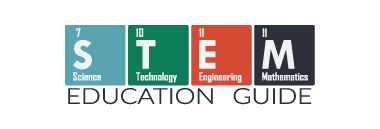The connection between education and job security is more important than ever. This article explores the intricate relationship between the two and offers insights into how education can be a key factor in achieving long-term job stability.
Table of Contents
The Changing Landscape of the Job Market

The job market is a living, breathing entity that never stays stagnant. With technological advancements, globalization, and shifts in consumer behavior, new industries are born while others become obsolete. Workers must be vigilant and willing to learn new skills, adapt to different tools, and even change career paths if necessary. This fluidity can be both an opportunity and a challenge, offering new horizons for those who are prepared and potential setbacks for those who resist change.
The Role of Education in Job Security

Education is more than just a pathway to a job; it’s a tool for life-long adaptability. Higher education, in particular, equips individuals with critical thinking, problem-solving, and specialized skills that are transferable across various fields. It creates a mindset that values continuous growth and learning, making individuals more resilient in the face of job market changes. Education is not just about landing the first job; it’s about ensuring that you are never left behind as the world evolves.
The Benefits of Continuous Learning

In a world where change is the only constant, continuous learning is not a luxury; it’s a necessity. Whether it’s taking online courses, attending workshops, reading industry-related materials, or engaging in hands-on projects, continuous learning keeps you at the forefront of your field. It’s about embracing a growth mindset, where challenges are seen as opportunities to learn and grow. This attitude not only enhances job security but also enriches personal and professional life.
The Impact of Specialization

Specialization can be a double-edged sword. On the one hand, becoming an expert in a specific area can make you highly valuable in that field. On the other hand, too narrow a focus can make you vulnerable if that area declines. The key is to balance specialization with a broader understanding of related fields and the flexibility to pivot when needed. This approach ensures that you are not only an expert but also a versatile professional who can adapt to changes within and beyond your specialized area.
The Importance of Soft Skills

Technical skills may get you the job, but soft skills can keep you in it. Communication, collaboration, empathy, problem-solving, and emotional intelligence are skills that transcend industries and roles. They enable you to work effectively with others, navigate workplace dynamics, and respond to challenges with grace and resilience. These skills are often nurtured through both formal education and life experiences, and they play a crucial role in long-term career success and job security.
The Rise of Online Education

Online education has revolutionized the way we learn. No longer confined to physical classrooms, individuals can now access quality education from anywhere in the world. This flexibility allows working professionals to enhance their skills, switch careers, or even pursue higher degrees without leaving their jobs. Online education breaks down geographical and financial barriers, making continuous learning a realistic goal for many. It’s a powerful tool in enhancing job security, allowing individuals to stay ahead of industry trends and technological advancements.
The Challenge of Student Debt

Education is an investment, and like all investments, it comes with risks. The rising cost of education, particularly in higher institutions, has led to a surge in student debt. This financial burden can have long-term consequences, affecting everything from homeownership to retirement savings. While education can undoubtedly enhance job security and earning potential, it’s essential to consider the cost and potential return on investment. Scholarships, community colleges, online courses, and employer-sponsored education programs are some ways to mitigate this challenge.
The Influence of Networking

Networking is often seen as a buzzword, but its importance cannot be overstated. Education provides a natural platform for networking, connecting students with peers, professors, alumni, and industry professionals. These connections can lead to mentorship opportunities, internships, job offers, and collaborations. Networking goes beyond mere socializing; it’s about building meaningful relationships that can support and enhance your career. In a competitive job market, having the right connections can make all the difference in securing and maintaining employment.
Lifelong Learning as a Philosophy

Lifelong learning is more than a trend; it’s a philosophy that recognizes the ongoing nature of education. It’s about embracing a mindset that values curiosity, exploration, and growth at all stages of life. This philosophy encourages individuals to see learning as a continuous journey, not just a means to an end. Whether it’s picking up a new hobby, reading a thought-provoking book, attending workshops, or pursuing formal education, lifelong learning enriches both personal and professional life. It fosters adaptability, resilience, and a sense of fulfillment that transcends the traditional boundaries of education and career.
The Intersection of Education and Technology

In the modern era, technology plays a pivotal role in both education and the job market. Understanding how to leverage technology for learning and professional growth is essential. From online courses to utilizing digital tools in the workplace, the intersection of education and technology offers new avenues for enhancing job security. This integration fosters a tech-savvy workforce capable of navigating the digital landscape, further solidifying the connection between education and long-term career stability.
The relationship between education and job security is not just about acquiring a degree. It’s about fostering a mindset of continuous growth, adaptability, and a willingness to embrace change. By understanding this connection, individuals can make informed decisions about their education and career paths, enhancing their long-term job security and success.








